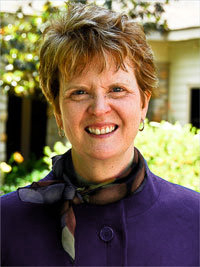Interesting Times
The recent presidential election gave new meaning to the old Chinese proverb "May you live in interesting times." How do we make sense of it all?
I have been reading a book by William McLoughlin which has contributed some insight. His proposition is that throughout American history, times of extreme cultural disorientation were precursors to momentous spiritual awakenings. There have been five of these since the coming of Europeans to the North American continent. The first was in the 1600s when the Puritans rebelled against the political and religious establishment in England. It resulted in the Puritans coming to the New World to establish a "city on a hill." The foundations for religious liberty and self-determination in our nation were established during that first awakening.
The last awakening was about 50 years ago, during the 60s. Many of us remember what a time of turmoil that was, with violence in the streets and on campuses as new ideas clashed with traditional structures. But the results included strides forward in civil rights, women's rights and cultural norms regarding personal liberty.
An Apt Description
Here is a quote from McLoughlin's book, which references the work of Anthony F. C. Wallace, a cultural anthropologist. Wallace wrote in the 1950s, but his description could well have been written this week:
"A great awakening occurs, Wallace says, when a society finds that its day-to-day behavior has deviated so far from the accepted (traditional) norms that neither individuals nor large groups can honestly (consistently) sustain the common set of religious understandings by which they believe (have been taught) they should act. When parents can no longer adequately guide their own lives or their children's, when schools and churches provide conflicting ethical guidelines for economic and political behavior, and when courts impose sanctions upon acts commonly recognized as necessary (or accepted) deviations from old rules, then a period of profound cultural disorientation results. Then leaders lose their authority and institutions the respect essential for their effective operation. Then men begin to doubt their sense and their sanity and to search about for new gods, new ways to perceive and comprehend the power that guides the universe." (Revivals, Awakenings, and Reform, p. 12).
What This Means for Us
If Wallace and McLoughlin are on to something, then our country could well be on the cusp of the next great awakening. We need not be victims of interesting times; we can help shape the future. McLoughlin's work calls for leaders who can articulate a new vision to restore confidence while creating institutions that are better suited for a new reality. A fresh understanding of God follows each awakening, unleashing the spiritual resources we need to reclaim our identity as God's beloved children.
Reflection Questions
Think back on a time when you experienced a personal disorientation that tested your faith. What was that experience like? How long did it last?
What was the outcome of your experience? What changes in your beliefs and lifestyle emerged? What aspects of that experience remain unresolved?
What meaning do you make of our current "interesting times?" What do you hope comes from this period of turmoil and confusion?
What commitments are you willing to make to be a part of the next great spiritual awakening? Where do you see the Spirit of Love at work? How can you become a part of that movement?
Copyright © 2016 It Starts here, All rights reserved.

 RSS Feed
RSS Feed